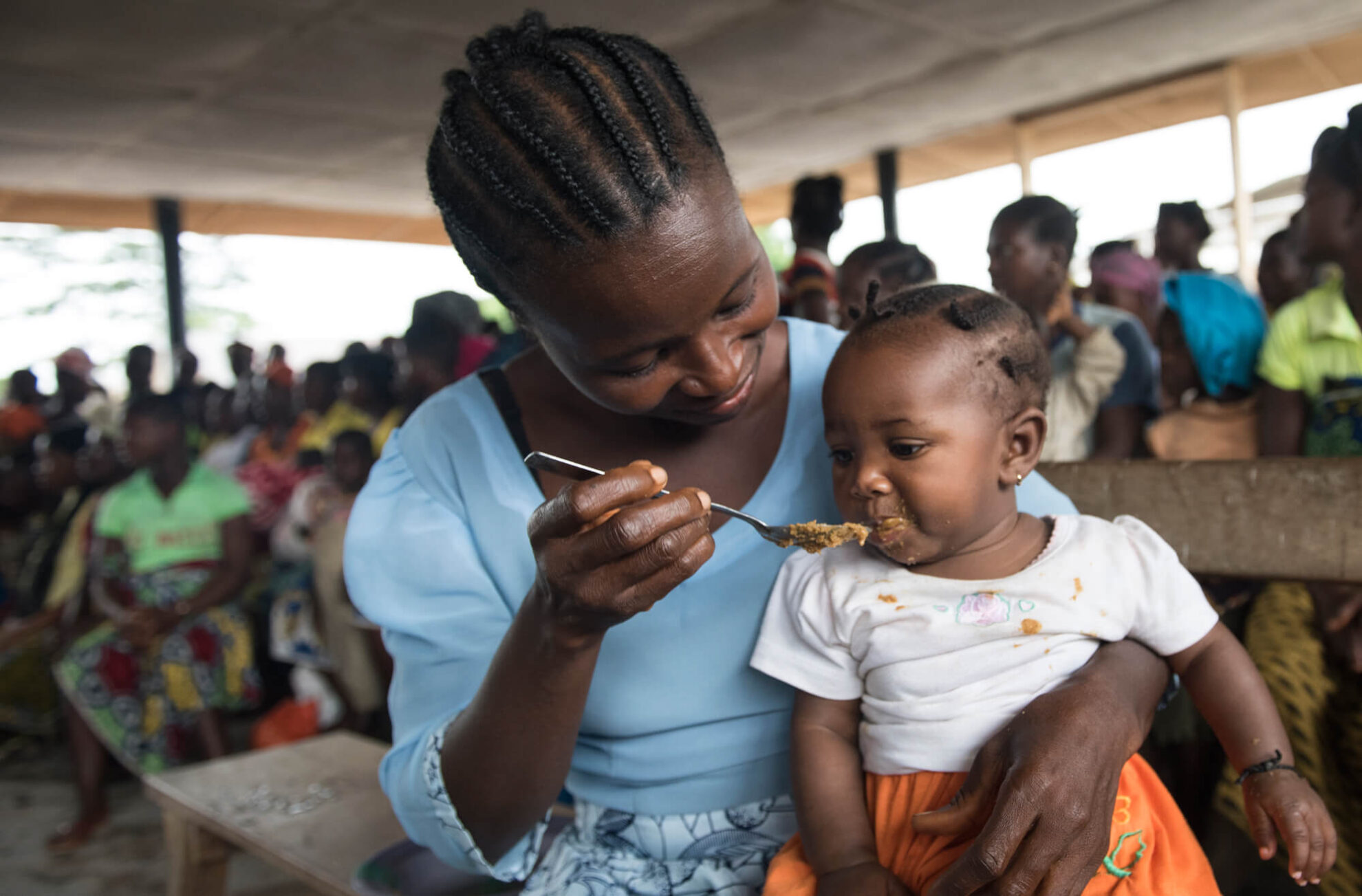When Yassa’s baby girl, Watta, started crying constantly and losing weight, Yassa knew something was wrong. What she didn’t know was that Watta’s road to recovery from malnutrition would lead to a huge change in her own life.
Yassa is a community health volunteer. She joined the heathcare team in Lofa, Liberia after Watta became malnourished started learning about the importance of a varied and nutritious diet.
Today, Yassa runs cooking demonstrations for other mothers, where she passes on her knowledge of the right kind of nutrition for children, as well as basic hygiene and care.
“I feel proud to have been asked to do this,” says Yassa. “I think it helps the other mothers because many don’t know how to prepare the right food, and why it is important to use food with vitamins for cleverness and proteins for strength. But now they know.”
Yassa and the healthcare team in Lofa are trying to change local customs and show the mothers a better way by creating recipes that use affordable and locally-available foods.
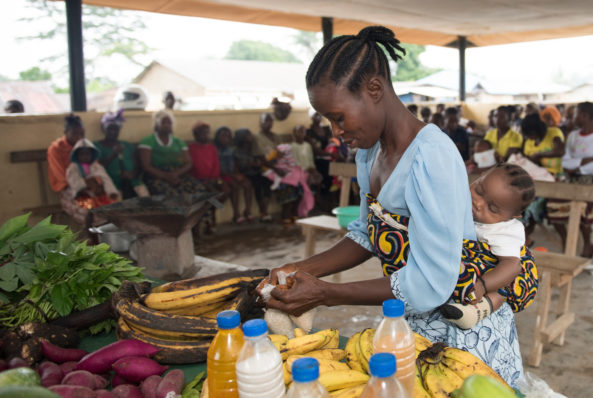
Long ago, we didn't know what was best for our children, but now I do and I'll tell everyone and they'll pass it on too.
If we keep doing this then every baby's mother will know what's best, and then all the children in Liberia will grow up strong and clever.
Yassa, newly-trained community health worker,
Lofa, Liberia
Tackling the root causes of malnutrition
What Yassa and other mothers in Liberia have learnt is that malnutrition is not the same as hunger. Children might be getting enough food to sustain them and make them feel full, but without the right nutrients in that food, they won’t be able to grow and reach their full potential.
Liberia has one of the highest child mortality rates in the world. Nearly one in three children suffers from chronic malnutrition, and one child in 14 dies before their fifth birthday. Many of those who survive are left stunted – when their bodies and brains haven’t grown in the way they should. We’re working in Liberia to tackle the root causes of chronic malnutrition, so that fewer children become malnourished.
If a child receives the right nutrition and care at the start of their lives, they’ll grow up healthy and strong – and there’s no limit to what they can become.
Giving a child the best start in life
The first 1,000 days are the most critical in a child’s life.
Without enough of the nutrients they need, their bodies and brains don’t develop the way they should – a condition known as stunting, which currently affects nearly a quarter of children under five.
How we’re helping children in Liberia
We’re working around the clock to treat children suffering from severe acute malnutrition with life-saving food like peanut paste. We’re also already working with the Government of Liberia on an ambitious, nationwide programme to reduce chronic malnutrition in children under five.
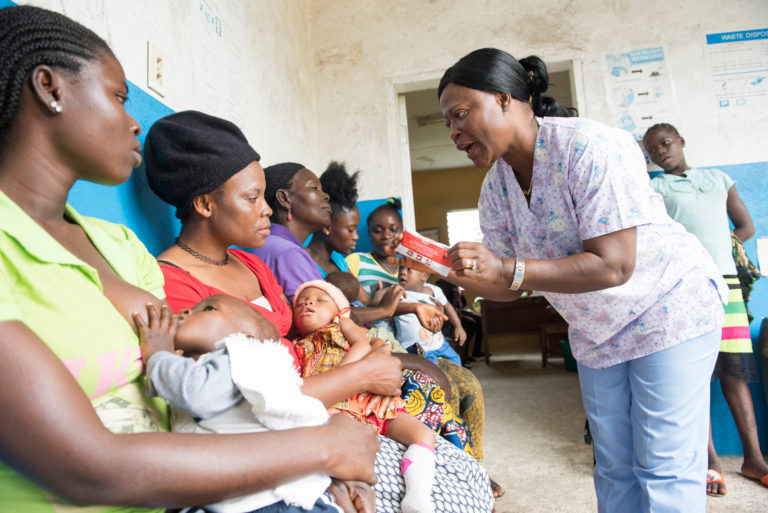
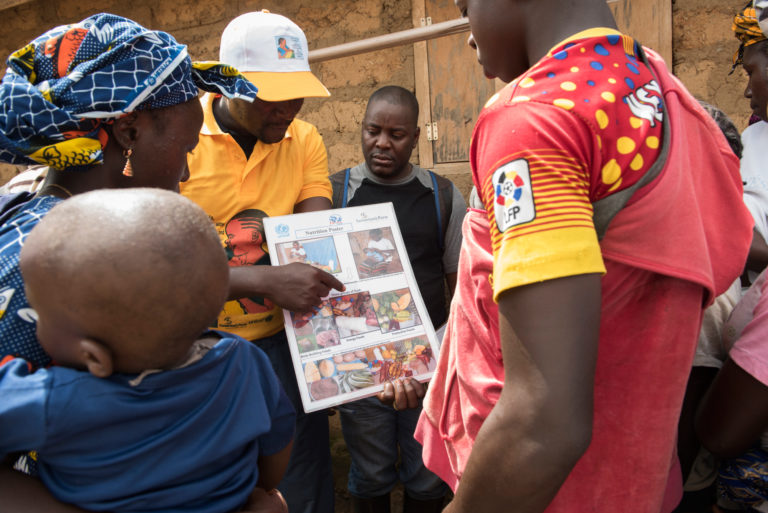
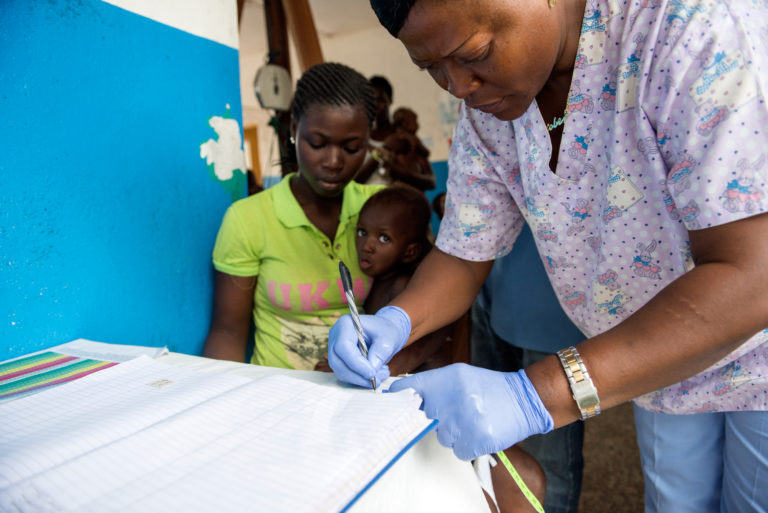
Preventing malnutrition is a global solution
Children who get the right nutrition will be better able to grow and learn, to participate in and contribute to their communities, and be resilient in the face of disease, disasters and other global crises.
Every pound spent fighting child malnutrition delivers £16 worth of social, economic and environmental benefits in the future.
So let’s do it. Liberia’s population is just 4.5 million, half of whom are children. We’re asking for your support to help us prevent malnutrition in Liberia. Together, we could change the future of an entire country.
Every £1 you give will be doubled by The Power of Nutrition, a charitable foundation, so your donation will go even further.
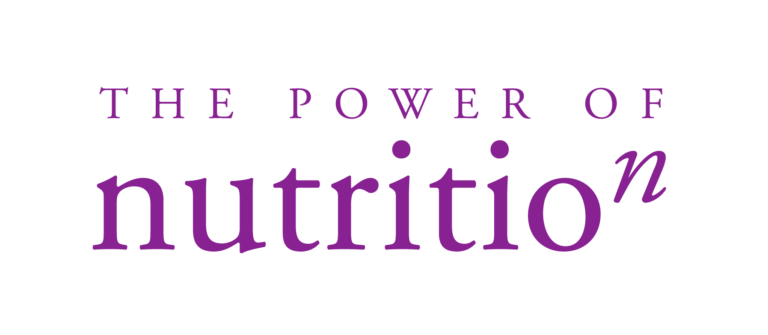
Every donation you make will be doubled by The Power of Nutrition – a charitable foundation – so it will go even further to help to prevent malnutrition for children in Liberia.


